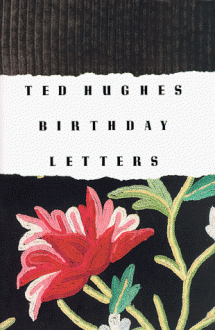Ted Hughes's Birthday Letters--88 tantalising responses to Sylvia Plath and the furies she left behind--emerge from an echo chamber of art and memory, rage and representation. In the decades following his wife's suicide in 1963, Hughes kept silent, a stance many have seen as guilty, few as...
show more
Ted Hughes's Birthday Letters--88 tantalising responses to Sylvia Plath and the furies she left behind--emerge from an echo chamber of art and memory, rage and representation. In the decades following his wife's suicide in 1963, Hughes kept silent, a stance many have seen as guilty, few as dignified. While an industry grew out of Plath's life and art, and even her afterlife, he continued to compose his own dark, unconfessional verses and edited her Collected Poems, Letters Home: Correspondence 1950-1963, and Journals. But Hughes' conservancy (and his sister Olwyn's power as Plath's executrix) laid him open to yet more blame. Biographers and critics found his cuts to her letters self-interested and decried his destruction of the journals of her final years--undertaken, he insisted, for the sake of their children. In Birthday Letters we now have Hughes's response to Plath's white-hot mythologising. Lost happiness intensifies present pain, but so does old despair: "Your ghost," he acknowledges, "inseparable from my shadow." Ranging from accessible short-story-like verses to tightly wound, allusive lyrics, the poems push forward from initial encounters to key moments long after Plath's death. In "Visit," he writes, "I look up--as if to meet your voice / With all its urgent future / that has burst in on me. Then look back / At the book of the printed words. / You are ten years dead. It is only a story. / Your story. My story." These poems are filled with conditionals and might-have- beens, Hughes never letting us forget the forces in motion before their seven-year marriage and final separation. When he first sees Plath, she is both scarred (from her earlier suicide attempt) and radiant: "Your eyes / Squeezed in your face, a crush of diamonds, / Incredibly bright, bright as a crush of tears ..." But Fate and Plath's father, Otto, will not let them be. In the very next poem, "The Shot", her trajectory is already plotted. Though Hughes is her victim, her real target is her dead father--"the god with the smoking gun." Of course, "The Shot" and the accusatory "The Dogs Are Eating Your Mother" are an incitement to those who side (as if there is a side!) with Plath. Newsweek has already chalked up the reaction of poet and feminist Robin Morgan to the book: "My teeth began to grind uncontrollably." But Hughes makes it clear that his poems are written for his dead wife and living children, not her acolytes' bloodsport. He has also, of course, written them for himself and the reader. Pieces such as "Epiphany", "The 59th Bear" and "Life After Death" are masterful mixes of memory and image. In "Epiphany", for instance, the young Hughes, walking in London, suddenly spots a man carrying a fox inside his jacket. Offered the cub for a pound, he hesitates, knowing he and Plath couldn't handle the animal--not with a new baby, not in the city. But in an instant, his potent vision extends beyond the animal, perhaps to his and Plath's children: Already past the kittenish But the eyes still small, Round, orphaned-looking, woebegone As if with weeping. Bereft Of the blue milk, the toys of feather and fur, The den life's happy dark. And the huge whisper Of the constellations Out of which Mother had always returned. Other poems are more influenced by Plath's "terrible, hypersensitive fingers", including "The Bee God" and "Dreamers", which is apparently a record of Plath's one encounter with Hughes' mistress: "She fascinated you. Her eyes caressed you, / Melted a weeping glitter at you. / Her German the dark undercurrent / In her Kensington jeweller's elocution / Was your ancestral Black Forest whisper--". This exotic woman, "slightly filthy with erotic mystery", seems a close relation to Plath's own Lady Lazarus and the poem would be equally powerful without any biographical information. This is the one, paradoxical, regret about this superb collection--these poems require no prior knowledge, but, for better or worse, we possess it. --Kerry Fried
show less






 6 years ago
6 years ago




 12 years ago
12 years ago




 13 years ago
13 years ago